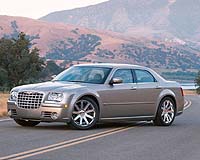 |
Toyota City, Japan (AFP) June 7, 2009 The world economy may still be in deep crisis, and the global auto sector in the doldrums, but Toyota Motor's vice president Takeshi Uchiyamada has some good news. After months of cutting output, closing plants and laying off staff as its car exports crashed, the world's biggest automaker has resumed overtime work to ramp up production of its new Prius hybrid. Last month, an industrial survey said the low-emission car for the first time topped Japan's monthly domestic car sales -- knocking its main rival, Honda Motor's Insight hybrid, from first spot. While US carmakers like General Motors are on life support, struggling under the dead weight of their fuel-guzzling sports utility vehicles, the plant here is humming to the tune of next-generation car technology. Japan's auto giants hope that, amid the global recession, brisk domestic sales and a worldwide trend towards tougher regulations on carbon dioxide emissions will keep them in international pole position. Toyota's Tsutsumi plant -- where the machinery is partly powered by giant solar panels on the roof -- manufactures about two-thirds of the Prius cars now produced in Japan, or about 50,000 units this month. In total four production lines for Prius hybrids are now in full operation which, Uchiyamada told journalists on a media visit with careful understatement, "is a hope for us." Hybrids were off to a slow start more than a decade ago, but since Toyota pioneered their mass production with its first generation Prius in 1997, annual sales have reached some 1.8 million vehicles worldwide. Hybrids run on electric motors but switch to petrol when batteries run low. They also save energy by converting kinetic energy during braking into power and by shutting down the engine when the car is stationary. Other carmakers are joining the race to build the green car of the future. Mitsubishi Motors on Friday announced it would start selling its iMiEV electric minicars next month to Japanese corporate and government customers, spearheading the commercialisation of zero-emission cars. Mitsubishi's president Osamu Masuko said "in the long run, the electric vehicle is the ultimate form of environmentally friendly car that can answer the question of air pollution and oil shortage." The downside of the electric car is its short range per charge, about 160 kilometres (100 miles) for the iMiEV. The key will be developing better batteries, a challenge Honda and Nissan are now heavily investing in. The United States last month unveiled strict new efficiency and greenhouse gas standards for cars, hoping to encourage struggling US automakers to invest in environmentally friendly vehicles. "The move is surely advantageous" for Toyota's hybrids, said Akihiko Otsuka, chief engineer of Prius's latest model. Analysts say Japanese carmakers will modestly expand their market shares in the United States while their American rivals are struggling. "American customers who love big cars don't suddenly change their taste to replace them with Japanese-made green cars," Credit Suisse analyst Koji Endo said. "But the trend of the whole market favouring green cars is a tailwind to Japanese carmakers." Looking further ahead, Toyota and Honda are also working on fuel cell cars, powered by a chemical reaction between hydrogen and oxygen, with water the only by-product. Major challenges remain the high cost of producing the fuel cells and the hydrogen used to power them. Another Toyota vice president, Masatami Takimoto said zero-emission cars becoming a mass market reality would depend on the pace of evolution in battery technology and finding a cheap way to produce hydrogen. Large-scale penetration of zero-emission cars, electric or fuel-cell, "will not come until about 2030," he said. "The technological challenge is enormous." Toyota has nonetheless started research on a next-generation battery. "I can't say when -- I even don't know if we can do it -- but we'll do our best to develop the next-generation battery whose cost, size and weight will be about 50 percent less than the latest model available now," he said. "It is a carmaker's mission to create ways to drive cars with energy sources other than oil. Crude oil will run out one day." Share This Article With Planet Earth
Related Links Car Technology at SpaceMart.com
 Appeals court clears Chrysler exit from bankruptcy
Appeals court clears Chrysler exit from bankruptcyNew York (AFP) June 5, 2009 A US appeals court Friday cleared the way for Chrysler to exit bankruptcy under an alliance with Italy's Fiat, dismissing a challenge from Indiana's state pension funds. A three-judge panel from Second Circuit Court of Appeals upheld without comment a decision by a bankruptcy judge approving the US government-backed plan to create a new entity to buy the assets of the troubled number three ... read more |
|
| The content herein, unless otherwise known to be public domain, are Copyright 1995-2009 - SpaceDaily. AFP and UPI Wire Stories are copyright Agence France-Presse and United Press International. ESA Portal Reports are copyright European Space Agency. All NASA sourced material is public domain. Additional copyrights may apply in whole or part to other bona fide parties. Advertising does not imply endorsement,agreement or approval of any opinions, statements or information provided by SpaceDaily on any Web page published or hosted by SpaceDaily. Privacy Statement |